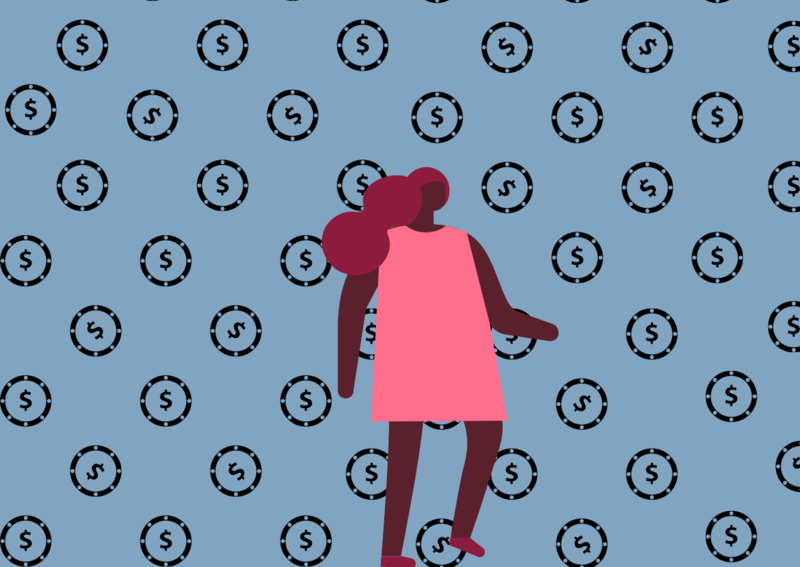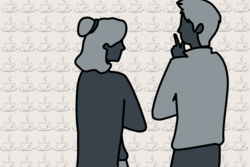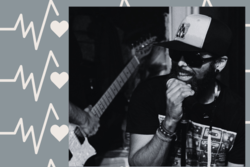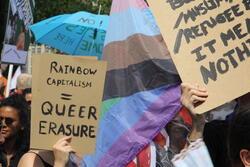Teen Access to Wealth: On Summer Camp, Systems of Oppression, and Guilt
Years ago, I walked beside an older attendee of my Jewish summer camp. Eyes focused ahead, my fellow camper wished aloud that she could attend camp all summer. When my eight-year-old self questioned why she wouldn’t, this teen I admired pivoted to face me.
“Camp costs a ton of money,” she said, with her head cocked and lips pressed. After a pause, she connected the dots for me: “My family can’t afford it.”
I've wonder what thoughts ran through the other camper’s mind at that moment. From her facial expressions, I detected a mixture of incredulity, resignation, and annoyance.
I was confused. It hadn’t occurred to me that lack of wealth might be a barrier for the people around me. In this moment, I realized: I was in the upper class and my experiences—from attending private school to not having to consider the price of groceries—made me an outlier.
It was only later that shame and guilt set in. As I became cognizant of the world’s inequities, I felt complicit. I was a rich child, born into wealth—the stereotypical villain in both the novels I loved and the mythologies of leftist circles I frequented. In response, I attempted to hide any traces of my class, refusing gifts and becoming enraged when my parents bought anything “nonessential.” I did all I could to avoid conversations about wealth, and with them, an accurate look at myself. I realized later that I was not alone in wanting to hide this aspect of myself.
I assumed that since I carry the label of “privileged,” the difficulties I experienced—mental health struggles, family substance abuse, grief—were trivial. When I felt down, I inevitably reminded myself that I had no justification for these emotions, as I was white, wealthy, and thus privileged in so many ways. This only bred further guilt that I choked down and allowed to churn in my stomach.
I eventually came to understand the fallacies in my outlook on wealth and privilege. I recognized the first fallacy when I read Victor Frankl’s Man’s Search for Meaning. In his book, Frankl compares suffering to the behavior of air in a canister: the air expands to fill the canister. Suffering expands to fill one’s being, so the experience of suffering is entirely relative. This analogy was striking to me; according to Frankl, my emotional reactions to relatively inconsequential (i.e. not life-altering) matters weren’t due entirely to my own weakness, but rather to the nature of suffering. My feelings weren’t “wrong,” and yet, like a small amount of gas, my suffering did not threaten to crack the chamber of my being. In other words, my privilege doesn’t allow me to avoid all suffering; it does, however, shield me from much of the suffering that affects less privileged individuals.
A conversation with family catalyzed my understanding of a second fallacy. My family had flown to Denver, an action I already saw as indulgent and planet-destroying, and we stopped at an REI. As we wandered through the various aisles, I derided my parents for trying to buy me new clothing that I saw as unneeded. Tensions mounting, we climbed into the car where my dad finally let loose his frustrations over this incident and the many others where I had chastised them. “It's our money,” he said, “We aren’t overly indulgent, we save a lot, and regardless, it’s money we earned through hard work.” I sat stewing for a bit before I blurted out, “But I didn’t earn it.” I hadn’t earned the luxuries they gave me, a fact that filled me with shame. My mom turned to look at me: “It’s our decision what we do with our money—that isn’t up to you. It makes us happy to provide for you, but once you’re out of the house, you can decide.” My breath slowed as I considered this. One day, I could make my own decisions about what to do with my income. Although it was wrong that, simply by virtue of to whom I was born, I have access to wealth, I was able to recognize that this isn’t of my doing or even the doing of my parents; it's a result of the inequitable structures of our country. In the wake of this realization, I’ve also come to understand that my access to wealth and privilege can be leveraged to fight these societal issues.
I write these words not in search of sympathy—far from it. These realizations have pushed me to fight for justice with more clarity. Guilt is a heavy load to bear and, although it can motivate one in the short term, its weight can topple a person and be inevitably counterproductive. A few months ago, my rabbi quoted Rabbi Abraham Joshua Heschel, who wrote, “Few are guilty, all are responsible.” It’s taken me years to understand that I'm not guilty for the wealth that I’ve been raised with; the systems that created and perpetuate this inequality don't rest in my hands. Yet, that doesn't mean I'm not bound to fight them. Those with access to wealth can use their resources and influence to donate to and work to support important causes led by those most affected. By coming not from a place of guilt, but rather from a sense of excitement at the world we can create, I’ve become a better organizer and kinder human. For the good of everyone, we must uproot the unequal systems that plague our country.
This piece was written as part of JWA’s Rising Voices Fellowship.







